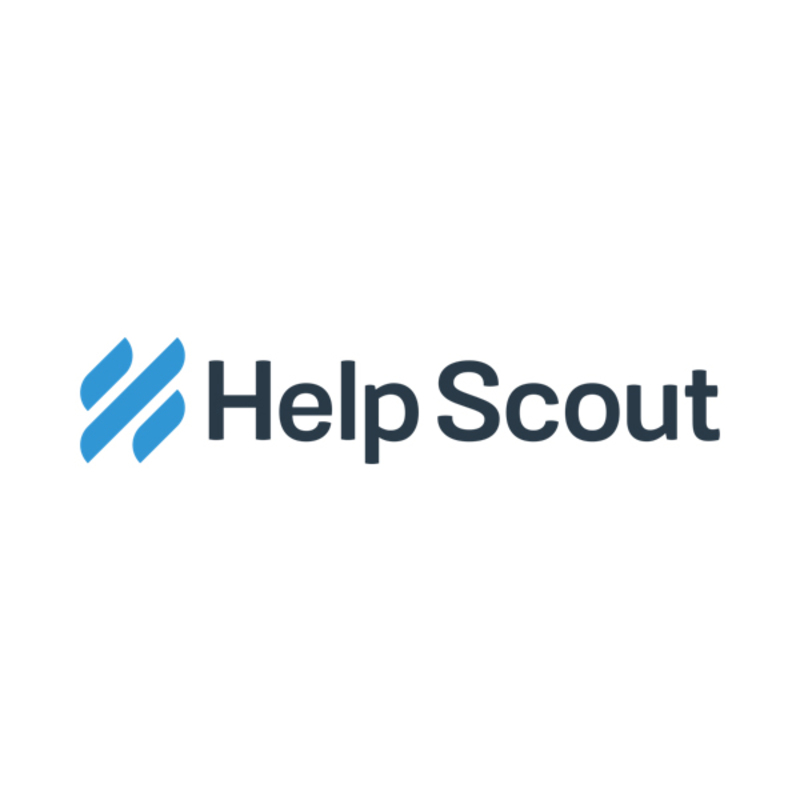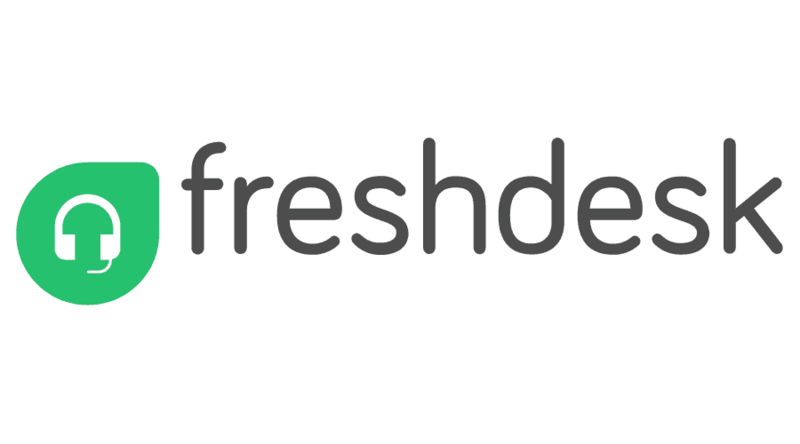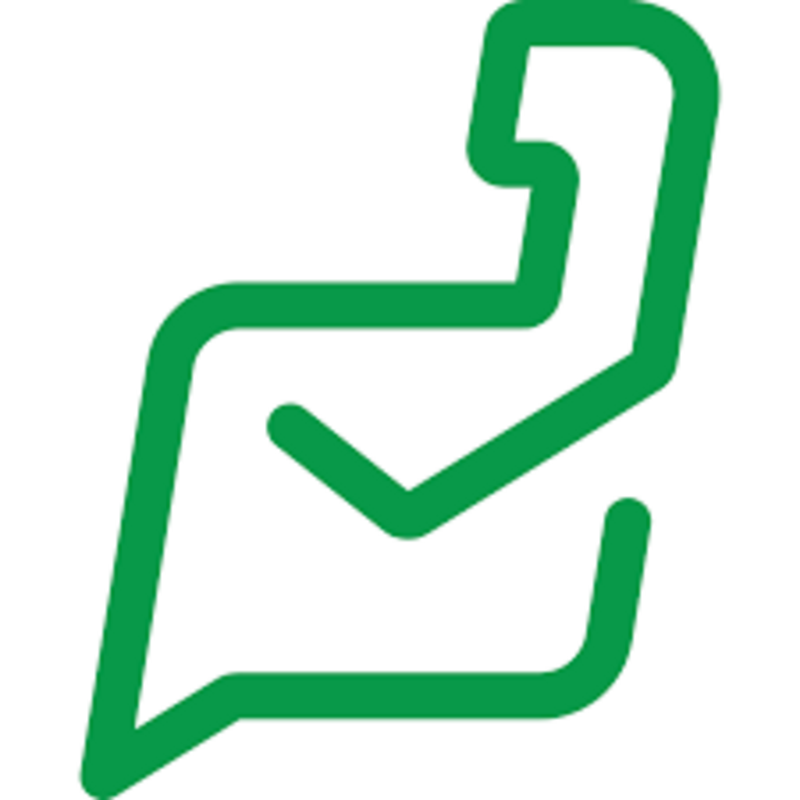Best Help Desk Software
No matter how successful your business is, customers will naturally want to ask questions, voice complaints or even claim refunds at one point or another. Help desk software can help anticipate what customers need in these cases and direct them to the appropriate channels, leading to greater customer satisfaction, retention and referrals. However, there is no one-size-fits-all solution for help desk software.
With so many options available, pinpointing the best help desk tool for your business can be a challenge. We compiled a list of our top picks for the best help desk software and reviewed them to help you find the one that's right for you.
Our Top Picks For Best Help Desk Software
- Help Scout – Best For Intuitive Interface
- Freshdesk – Best For AI-Powered Automation
- ManageEngine ServiceDesk Plus – Best Enterprise Help Desk Software
- Zendesk – Best For Third-Party Integrations
- Zoho Desk – Best For Multi-Channel Support
Best Help Desk Software Reviews
Why we chose it: Help Scout stands out for its user-friendly interface on both desktops and mobile, making it easy for teams to navigate and manage customer support queries.
Help Scout's ease of use is a major selling point, as it minimizes the learning curve for new agents. The simplicity of the platform means you can have it up and running much faster than most other help desk software. Should issues arise, however, their customer support is available 24/7, ensuring businesses receive the assistance they need in a timely manner.
The platform offers a range of essential features, such as email support and team inbox, live chats and knowledge base management. Help Scout also has some integration capabilities, but with only around 90 apps, it has barely a fraction of what competitors' platforms offer. However, for new or small businesses, a few integrations may be all that's required.
Help Scout offers reasonable pricing plans, with a free trial available for those looking to test the platform. Annual plans start at a monthly price of $20 per user, with $40 and $65 for the Plus and Pro plans, respectively. Though the entry prices are a little higher than some competitors, it includes live chat in all pricing tiers, unlike most other platforms.
Why we chose it: Freshdesk is our top choice for AI-powered automation because its innovative AI automation tools fit into a well-rounded package of help desk solutions.
AI technology is slowly becoming a standard feature of help desk software. Freshdesk's implementation remains innovative, thanks to advanced features like ticket categorization and routing, which reduces the workload on agents by helping them prioritize and respond to requests faster.
The Freddy AI chatbot resolves many customer questions by answering them or suggesting solutions without involving a live agent. When an issue does require an agent, they can convert replies into knowledge base articles for future use by customers. Said knowledge base content is available in a self-service portal across all communication channels, ensuring that businesses can manage customer inquiries from a variety of sources without sacrificing functionality.
Freshdesk offers a variety of pricing plans, including a free tier for new or small businesses. Paid plans include $15, $49 and $79 per agent per month based on an annual subscription. Although pricing is slightly higher than some competitors, we found that the advanced automation features justify the cost.
In addition to its automation tools, Freshdesk boasts a wide range of features, including ticket management, collaboration tools and reporting. With numerous integration options, you can easily connect your help desk with other tools you use. There is also no minimum agent requirement, making it suitable for businesses of all sizes.
Why we chose it: ManageEngine ServiceDesk Plus is our top pick for enterprise help desk software, offering a comprehensive and scalable solution to support large organizations. Its subscription customizations make it the most versatile platform for enterprises looking for more than just a help desk.
As an IT help desk, ManageEngine ServiceDesk Plus offers businesses a complete solution for dealing with customer and internal issues. The platform's comprehensive set of features includes IT asset management, incident management and change management. It also offers standard help desk support tools — an ideal package for enterprises that require a complete suite of support services.
Costs for the ServiceDesk Plus vary because it allows for more customization than other help desk options, which can make pricing confusing, but it also makes it so you only pay for what your business needs. Basic plans paid yearly for an IT help desk start at $10, $21 and $50 a month per technician; the number of techs and nodes will significantly impact monthly costs, as will any add-on services, such as project management, problem management and service catalog.
The platform's customizable dashboard features a modern design and allows organizations to tailor the software to their specific needs. While teams may need time to get up to speed, its customer support is available to assist with any issues. Live chat is available for $65 per tech per year.
For general tutorials, ManageEngine includes a variety of guides, video tutorials and online seminars. As you would imagine, integration capabilities are extensive for a platform of this size, ensuring seamless connection with other enterprise tools. There are no minimum agent requirements.
Why we chose it: Zendesk is our top choice for third-party integrations because it offers businesses the ability to seamlessly connect their help desk with an industry-leading 1,200 different tools and platforms.
Zendesk's extensive third-party integration capabilities make it a valuable investment for businesses looking to optimize their help desk operations. Users can integrate apps from the Zendesk marketplace and choose from pre-made templates to give their help desk ticket software the full functionality and design they're looking for. Its range of features is also impressive, including ticket management, live chat and knowledge base management.
Annual plans start at the monthly price of $19 per agent, with the middle and highest tiers costing $49 and $99 per agent, respectively. Customization functionality and live chat become available in the middle-level plan, though many businesses may not need a custom interface.
The software's default, user-friendly interface makes it easy for agents to navigate the platform and manage customer support tasks. The mobile app is also simple to use and provides remote help desk software for employees on the go.
Another unique feature that sets Zendesk apart from the crowd is customization options for platform support. Subscribers at even the starting plan tier can purchase the Premier plan for 24/7 support. Moreover, the platform does not have a minimum agent requirement, making it suitable for businesses of all sizes.
Why we chose it: Zoho Desk is our top choice for multi-channel support because it enables businesses to seamlessly manage customer interactions across various platforms.
Zoho Desk integrates popular messaging apps such as WhatsApp, WeChat and Telegram into its selection of support channels, making your business more accessible to customers wherever they are. Its canned responses expedite resolutions, while its AI automation helps both customers and agents get the answers they need faster. Zoho Desk also offers a range of essential help desk tools, such as ticket management, ticket reporting and knowledge base management.
Zoho Desk offers relatively affordable plans, including a free tier for small businesses, which makes it more accessible for companies on a tighter budget. Annual pricing starts at $14 a month per agent and goes up to $40 a month for its highest plan tier — a more affordable option than many of Zoho's competitors.
Although live chat is only available at the middle and upper-plan tiers, even the lowest tier includes customer support through a variety of messaging platforms, as well as on Facebook and Twitter. The platform has no minimum agent requirement, so it's suitable for businesses of all sizes.
All subscribers can receive customer support through mail and phone, and the upper and middle and upper subscription tiers have access to live chat. The software may require some effort to fully utilize its advanced features. Still, its multi-channel support capabilities (including email, social media, live chat, text and phone) make it a powerful ticketing help desk platform.
Other Help Desk Software We Considered
We also looked at other help desk software that could meet your business needs.
HubSpot Service Hub
Why Hubspot Service Hub didn't make the cut: HubSpot Service Hub is a strong help desk service with seamless CRM integration and an intuitive interface. However, because the platform is so CRM-focused, its pricing structure can be a bit convoluted. HubSpot Service Hub also lacks a subscription plan between its $18 per month and $450 per month options.
Jira Service Management
Why Jira Service Management didn't make the cut: Jira Service Management offers robust project management features and customizable workflows ideal for agile teams. Although it offers plans for businesses of any size, large businesses will benefit most from the extensive features in its plans.
Unfortunately, the Enterprise plan is more of a one-size-fits-all subscription and doesn't provide a large business the flexibility offered by our top choice, ManageEngine ServiceDesk Plus.
HappyFox
Why HappyFox didn't make the cut: HappyFox is a user-friendly help desk solution that shines when it comes to multilingual support and knowledge base articles. Messages from customers can be instantly translated from a wide variety of languages. However, its limited features in lower-tier plans and five-agent minimum make it a less attractive option compared to our top picks.
Help Desk Software Guide
Choosing the right help desk platform is a major decision for any business. Before making such an important decision, you should understand what help desk solutions are and how they work.
What Is Help Desk Software?
Help desk software is a tool that allows businesses to manage and streamline their customer support processes. It enables teams to track, prioritize and resolve customer issues through a centralized platform, improving response times and overall customer satisfaction.
Help desk platforms typically include features like ticket management, customer communication, knowledge base management, reporting and analytics. These tools offer support for businesses looking to optimize their customer support operations and improve customer satisfaction. They do so by providing a centralized location for managing support inquiries and tracking customer interactions.
Some help desk ticket software may also feature an IT help desk or service desk. However, these two types of service are not always integrated. Service desk platforms respond to internal issues within a company and may include technical support, administrative concerns or incident management.
How Does Help Desk Software Work?
Help desk software works by providing a platform for customer support agents to receive, track and manage customer inquiries, known as tickets. These tickets can be created through various channels, such as email, phone, live chat or social media.
Support agents then use the help desk software to manage and respond to these tickets or escalate tickets as needed. The software often includes features like automation, reporting and knowledge base management where customers can find answers to common questions or browse support articles.
What To Consider When Choosing A Help Desk Software Solution
The first order of business is to decide what factors are most important to your business, as doing so will help you narrow down your choices and find the best option for you.
Make a list of help desk software platforms that include your must-haves. Don't be swayed by fancy features you don't need or can't afford. Stick to your budget, determine the level of support you require and consider the number of agents you need.
With these factors in mind, you can find the perfect help desk software solution to improve your customer support and grow your business.
What You Can Afford
Consider your budget when selecting a help desk software solution. While you want to provide the best customer support possible, you also need to make sure you're not overspending. To that end, compare different plan levels, or look for software that provides free subscriptions for small businesses.
Search for software solutions that fit what your business can afford and still offer the features you need. Make sure you understand their pricing structure and keep tabs on any additional costs, such as setup fees or integration fees, to determine which plan best suits your business. If your budget is tight, open-source help desk software may be a good option.
The Level Of Support Your Business Requires
Different businesses have different customer support requirements. Some businesses require 24/7 support, while others only need support during regular business hours. Before looking for help desk software, determine the level of support your business needs, including the complexity and volume of your customer inquiries.
The Number Of Agents You Need
Consider the size of your customer support team when choosing a help desk solution. Some platforms have minimum agent requirements or charge per agent, so selecting a solution that aligns with your team size and structure is essential.
If you're just getting started with help desk software for small businesses, you may want a platform that allows you to add more agents as your business grows. You don't want to pay for features you don't need yet.
The Languages You Want To Offer Support In
English may be the international language of business, but that doesn't mean all your customers will speak it. If your business serves a global customer base, you may need to provide support in multiple languages.
Consider both the languages your customers speak and the languages your support team is fluent in. Look for help desk software that offers multilingual support to ensure your customers can receive support in their preferred language.
Helpful Tips For Using Help Desk Software
- Train your support agents on the platform to ensure they can effectively use its features.
- Customize your help desk software to match your brand and create a seamless customer experience.
- Utilize automation features to streamline repetitive tasks, improve response times and free up your team to tackle more complex support issues.
- Customize your ticket management workflows to fit your business needs.
- Regularly analyze reporting data to identify areas for improvement in your support processes.
- Encourage collaboration among your support agents to resolve complex issues more efficiently.
- Integrate your help desk software with other apps and services to improve your workflow and efficiency.
Help Desk Software FAQ
How We Chose The Best Help Desk Software
- Ease of use: We prioritized help desk software that offers an intuitive interface, making it easy for agents and administrators to navigate and manage customer support tasks.
- Pricing and affordability: We considered software solutions with a variety of pricing plans to accommodate businesses with different budgets and requirements.
- Range of features: We evaluated software based on the breadth and depth of the features they provide and made sure they offered essential tools for effective customer support.
- Integration capabilities: We favored help desk software that integrates seamlessly with other popular business tools and platforms, allowing for streamlined workflows.
- Customer support: We selected software providers that offer responsive and reliable customer support to address any issues users may encounter.
- Scalability and adaptability: We chose help desk software that can grow and adapt to the changing needs of a business, ensuring long-term viability.
- Minimum agent requirements: We considered software solutions without minimum agent requirements or with flexible pricing options to accommodate businesses of all sizes.




